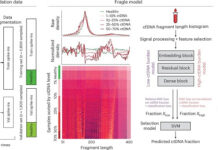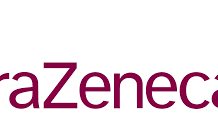Treatment Shortages Put Thousands at Risk
For thousands of haemophilia patients in Maharashtra, every injury is a potential threat to life. However, access to essential treatment is rapidly diminishing. Budget cuts have led to severe shortages of clotting factors, leaving many—especially children—suffering from prolonged bleeding, excruciating joint pain, and an increased risk of fatal haemorrhages. With life-saving medications unavailable and emergency treatment centres shutting down, patients are struggling to survive.
Drastic Budget Cuts Leave Patients Helpless
Maharashtra does not have a dedicated budget for haemophilia treatment. Jigar Kishore Kotecha, Secretary of the Haemophilia Society Mumbai Chapter, highlighted the devastating impact of funding gaps. “Patients are suffering, and uninterrupted care has become a distant dream,” he said. The National Health Mission (NHM) budget for haemophilia has been slashed from Rs 91 crore to just Rs 25-27 crore, severely limiting access to clotting factors. “We are not just asking for funds; we are asking for survival,” he added. Last week, the Haemophilia Society Mumbai Chapter formally requested intervention from the state health department.
Unused Funds Raise Accountability Concerns
Despite a significant portion of the original Rs 91 crore budget remaining unspent, the State Health Coordinator has requested additional funds for Extended Half-Life Factor VIII. Meanwhile, patients continue to face shortages of standard clotting factors. Even NHM officials have questioned why new funds are being requested while allocated money remains unused. “Patients are being neglected, and accountability is missing,” the Haemophilia Society stated.
KEM Hospital Faces Severe Shortages
In Mumbai alone, nearly 950 registered haemophilia patients depend on KEM Hospital’s International Treatment Centre (ITC) for Anti-Haemophilic Factors (AHF). However, procurement delays have caused a severe shortage, putting patients at serious risk. The Haemophilia Society Mumbai Chapter has urged immediate action to restore AHF supply at KEM, warning that further delays could result in medical emergencies.
Pune Patients Struggle as NHM Withdraws Funding
As reported by indianexpress, the crisis extends beyond Mumbai. Pune’s Sassoon General Hospital and BJ Medical College, both vital haemophilia treatment centres, are also facing critical shortages. The NHM recently withdrew funding for anti-haemophilia injections at these hospitals, shifting financial responsibility to the Department of Medical Education and Research (DMER). This abrupt policy change has left nearly 250 registered patients in Pune without treatment.
A doctor from Sassoon Hospital revealed the financial burden: “If we have to purchase these injectables for our patients, it would cost nearly Rs 6-7 crore per year, as each dose costs between Rs 10,000 and Rs 20,000.”
Discontinuing Treatment at KEM Worsens the Crisis
The decision to discontinue government-supported haemophilia treatment at KEM Hospital has made the situation even worse. KEM plays a crucial role in treating severe haemophilia cases, and shutting down its treatment services means abandoning patients. “This decision must be reversed immediately, and the procurement of AHF must resume to ensure uninterrupted treatment,” Kotecha urged.
Haemophilia Treatment Centres Face Prolonged Shortages
Haemophilia treatment centres (HTCs) across Maharashtra are also struggling. The government had committed to supplying AHF to three municipal haemophilia centres, but this supply has been stalled for over two to three months. Without a proper monitoring mechanism, patients are left in distress, unsure when essential medication will be available again.
Municipal Hospitals Critically Underfunded
Municipal hospitals, another key support system for haemophilia patients, are also facing extreme funding shortages. Despite government assurances, AHF stock has been depleted, and replenishment has been indefinitely delayed. “There is no clarity on when the next batch of life-saving drugs will arrive. In the meantime, patients continue to suffer,” the Haemophilia Society stated.
Tender Cancellations Worsen Drug Shortages
Frequent tender cancellations have intensified the crisis. “Companies bid for tenders without maintaining stock, and the government allows it. As a result, patients are left without crucial medications,” Kotecha explained. The society has called for stricter procurement policies, approval for Extended Half-Life Factor VIII, and the introduction of non-factor replacement therapy for inhibitor patients who currently have no treatment options.
Lack of a Civil Hospital in Mumbai Deepens Crisis
Mumbai’s lack of a dedicated Civil Hospital for haemophilia care has worsened the crisis. “In a city this large, not having a Civil Hospital for haemophilia treatment is unacceptable,” Kotecha stated. He urged Maharashtra to adopt successful models from Gujarat, Goa, Telangana, and Rajasthan. “These states have structured systems that work. Maharashtra must act before more lives are lost.”
Government Fails to Implement Expert Recommendations
The Haemophilia Society has also warned that the state government is disregarding recommendations from its own technical committee. This has led to flawed policies that fail to address patient needs effectively.
State Officials Acknowledge Policy Challenges
Dr. Mahendra Kendre, Assistant Director (Blood Cell) at the State’s Directorate of Health Services, acknowledged the difficulties caused by policy shifts. “With funding redirected from medical colleges to district hospitals, maintaining consistent haemophilia care has become a challenge,” he admitted. “KEM Hospital, a key treatment centre for haemophilia patients across Maharashtra, is no longer eligible for funding. We have raised this issue with the Centre and are working towards a solution.”
Call for Immediate Action
The haemophilia crisis in Maharashtra demands urgent intervention. Patients, advocacy groups, and medical professionals are urging the government to restore funding, ensure proper procurement, and implement structured treatment models. Without immediate action, the lives of thousands remain at risk.
























